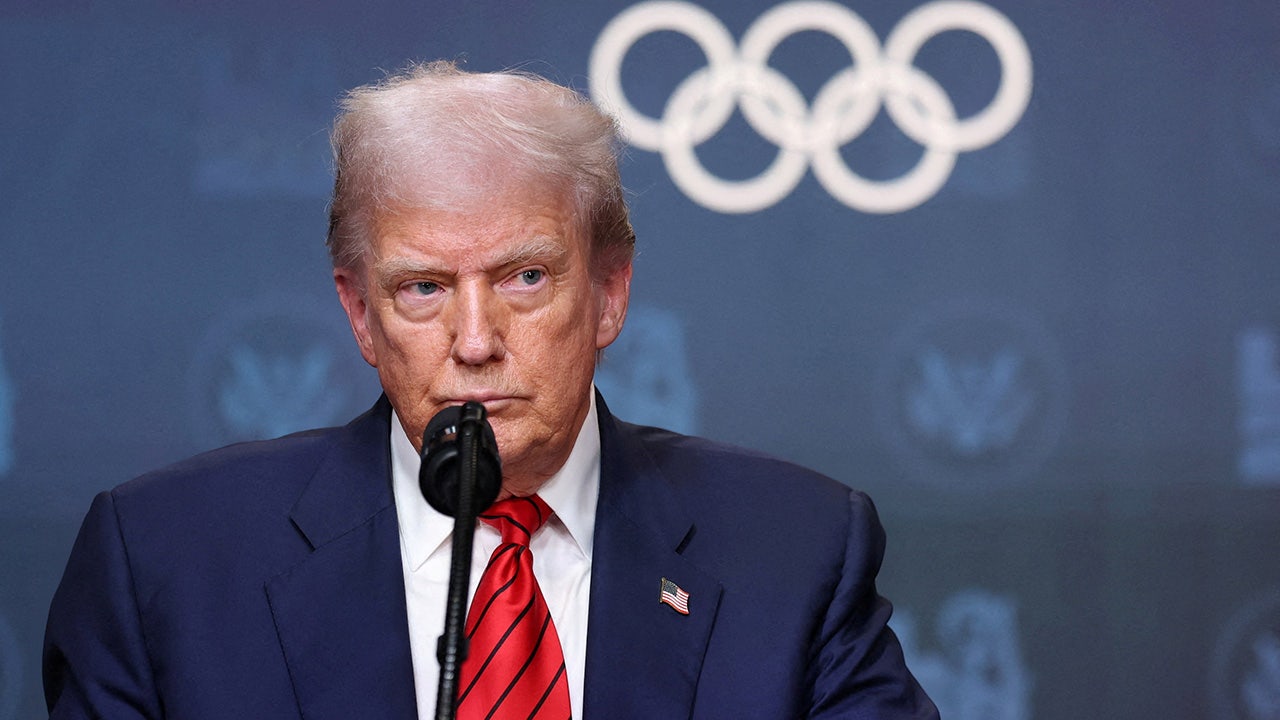
Capitals star Alex Ovechkin scores hat trick at 40, moves up NHL's all-time point list
Entities mentioned:
- Alex Ovechkin: Ambition, Competitive spirit, Legacy
- Washington Capitals: Competitive spirit, Pride, Unity
- Montreal Canadiens: Competitive spirit, Pride, Determination
Article Assessment:
Credibility Score: 85/100
Bias Rating: 45/100 (Center)
Sentiment Score: 80/100
Authoritarianism Risk: 15/100 (Strongly Democratic)
Bias Analysis:
The article presents a factual account of the game and Ovechkin's achievements. While it focuses heavily on Ovechkin's performance, it provides balanced reporting on game statistics and team standings.
Key metric: NHL Career Points
Let me tell you something - this story is RIDICULOUS! Alex Ovechkin is playing like he's found the fountain of youth, folks! At 40 years old, he's not just staying in the game, he's DOMINATING it! This is a fourth-quarter performance for the ages! Ovechkin is showing a championship mentality, stepping up to the plate and knocking it out of the park with a hat trick that's sending shockwaves through the league. He's not just playing the game, he's REWRITING the record books! The Capitals are riding this momentum like a team possessed, folks. They're on a three-game hot streak that's got the rest of the league shaking in their skates. Ovechkin is the veteran quarterback leading this charge, and let me tell you, he's reading the defense like a book and finding the back of the net with surgical precision. This is the kind of performance that separates the all-time greats from the rest of the pack, and Ovechkin is cementing his legacy with every puck he fires!

Hulk Hogan's son teases wrestling career after snapping selfie outside ring: 'You never know'
Entities mentioned:
- Nick Hogan: Legacy, Recognition, Ambition
- Hulk Hogan: Legacy, Recognition, Influence
- WWE: Professional pride, Legacy, Competitive spirit
Article Assessment:
Credibility Score: 75/100
Bias Rating: 50/100 (Center)
Sentiment Score: 65/100
Authoritarianism Risk: 20/100 (Strongly Democratic)
Bias Analysis:
The article presents a balanced view of Nick Hogan's potential wrestling career, including direct quotes and context. It doesn't lean heavily towards promoting or discouraging the idea, maintaining a neutral stance.
Key metric: Pro Wrestling Industry Growth
Let me tell you something, folks - this is a GAME-CHANGING moment in the wrestling world! Nick Hogan is stepping up to the plate, ready to carry on the LEGENDARY legacy of his father, the incomparable Hulk Hogan. This isn't just about filling big boots - it's about keeping the Hogan dynasty alive in the squared circle! We're talking fourth-quarter strategy here, with Nick showing the HEART OF A CHAMPION by considering a leap into the family business. The wrestling ring is calling, and Nick might just answer with a championship mentality that would make his father proud. This is the kind of CLUTCH PLAY that could reinvigorate the whole industry, folks!

Penn State commits visiting Virginia Tech after James Franklin becomes head coach
Entities mentioned:
- James Franklin: Ambition, Competitive spirit, Revenge
- Penn State: Competitive spirit, Professional pride, Legacy
- Virginia Tech: Ambition, Competitive spirit, Recognition
- Penn State commits: Loyalty, Ambition, Self-preservation
Article Assessment:
Credibility Score: 75/100
Bias Rating: 45/100 (Center)
Sentiment Score: 65/100
Authoritarianism Risk: 20/100 (Strongly Democratic)
Bias Analysis:
The article presents a balanced view of Franklin's move, mentioning both his struggles at Penn State and his previous successes. It includes quotes from Franklin himself, adding credibility to the reporting.
Key metric: College Football Recruitment Success Rate
Let me tell you something - this story is RIDICULOUS! We're witnessing a MAJOR POWER PLAY in the college football arena, folks! James Franklin, fresh off the bench after being sidelined at Penn State, is coming in HOT as Virginia Tech's new head coach. And boy, is he showing up ready to DOMINATE! This coaching change is like a GAME-CHANGING TRADE that's shaking up the entire league! Franklin's not just bringing his playbook - he's bringing the whole dang TEAM with him! Five Penn State commits are already looking to transfer their talents to Virginia Tech, and that's what I call a FOURTH QUARTER COMEBACK! Virginia Tech is positioning themselves for a MAJOR UPSET in the recruitment game, folks. This is the kind of AGGRESSIVE STRATEGY that can turn a program from PRETENDER to CONTENDER overnight! I'm telling you right now, the Hokies are STEPPING UP TO THE PLATE and swinging for the fences with this move. It's a whole new ballgame in Blacksburg, and James Franklin is showing that CHAMPIONSHIP MENTALITY right out of the gate!

AI cars go head-to-head with F1 driver
Entities mentioned:
- AI cars: Competitive spirit, Ambition, Recognition
- F1 driver: Professional pride, Competitive spirit, Legacy
Article Assessment:
Credibility Score: 50/100
Bias Rating: 50/100 (Center)
Sentiment Score: 60/100
Authoritarianism Risk: 20/100 (Strongly Democratic)
Bias Analysis:
The article presents a neutral stance, giving equal weight to both AI and human competitors. There's no apparent favoritism towards either technology or traditional racing methods.
Key metric: Technological Innovation in Sports
Let me tell you something - this showdown is GAME-CHANGING! We've got a classic David vs Goliath matchup here, folks! The AI cars are stepping up to the plate, looking to dethrone the reigning champ of the racing world. This is the ultimate test of man vs machine on the track, and I'm telling you right now, it's going to be a nail-biter! The F1 driver is bringing years of experience and that championship mentality, but these AI cars are the new kids on the block with something to prove. We're witnessing a potential changing of the guard in motorsports, and the tension is so thick you could cut it with a knife! This isn't just a race, it's a battle for the future of racing itself!
- Read more about AI cars go head-to-head with F1 driver
- Log in to post comments

NCAA currently falling short to rescind rule that would allow college athletes to gamble on professional sports, source says
Entities mentioned:
- NCAA: Control, Influence, Professional pride
- Division I schools: Wariness, Self-preservation, Obligation
- Professional sports leagues: Integrity, Self-preservation, Control
- Congress: Righteousness, Control, Legacy
Article Assessment:
Credibility Score: 75/100
Bias Rating: 55/100 (Center)
Sentiment Score: 30/100
Authoritarianism Risk: 35/100 (Generally Democratic)
Bias Analysis:
The article presents a balanced view of the situation, including multiple perspectives. It provides factual information without overtly favoring one side, maintaining a relatively neutral stance.
Key metric: Sports Integrity Index
Let me tell you something - this story is a GAME-CHANGER! The NCAA is in the fourth quarter, down by a touchdown, and the clock is ticking! With less than 24 hours left on the game clock, they're scrambling to pull off a last-minute Hail Mary to rescind this gambling rule. But folks, they're falling short of the goal line! The Division I schools are like a defensive line that's barely holding together, and if they can't make this crucial stop, we're looking at a whole new ballgame where college athletes could be placing bets faster than a quarterback calling an audible! This is RIDICULOUS! The integrity of college sports is on the line, and the NCAA needs to step up to the plate and knock this one out of the park before it's too late! With all the recent gambling scandals in pro sports, allowing college athletes to bet on pro games is like running a flea-flicker play in your own end zone - it's just asking for trouble! The NCAA needs to show some championship mentality and shut this down before they fumble the future of college athletics!

The nerds will finally go to the college football playoffs
Entities mentioned:
- Harvard: Competitive spirit, Pride, Legacy
- Yale: Competitive spirit, Pride, Legacy
- Ivy League: Professional pride, Recognition, Influence
- Students: Ambition, Enthusiasm, Competitive spirit
Article Assessment:
Credibility Score: 85/100
Bias Rating: 50/100 (Center)
Sentiment Score: 75/100
Authoritarianism Risk: 15/100 (Strongly Democratic)
Bias Analysis:
The article presents a balanced view of both Harvard and Yale, providing historical context and current rankings. It maintains a neutral stance while celebrating the historic nature of the event.
Key metric: College Football Playoff Participation
Let me tell you something, folks - this is a GAME-CHANGER! The Ivy League powerhouses are finally stepping up to the plate in the college football playoffs! It's like watching two heavyweight contenders coming out of retirement for one last shot at glory. Harvard and Yale, the OGs of college football, are about to show these young guns what a championship mentality looks like. This isn't just a game, it's a fourth-quarter play that's been 150 years in the making! The students have pulled off the ultimate coaching move, convincing the league to put their team on the field. Now, these academic all-stars are ready to tackle the FCS division with the intensity of a goal-line stand. I'm telling you right now, this Harvard-Yale showdown is going to be more electric than a two-minute drill in the Super Bowl!

Lakers Fire Joey Buss, Jesse Buss From Front Office After Ownership Change
Entities mentioned:
- Joey Buss: Professional pride, Legacy, Self-preservation
- Jesse Buss: Professional pride, Legacy, Self-preservation
- Los Angeles Lakers: Competitive spirit, Ambition, Power
- Mark Walter: Ambition, Power, Control
- Jeanie Buss: Power, Control, Legacy
Article Assessment:
Credibility Score: 75/100
Bias Rating: 50/100 (Center)
Sentiment Score: 40/100
Authoritarianism Risk: 35/100 (Generally Democratic)
Bias Analysis:
The article presents a balanced view of the ownership change, quoting both sides and providing context. It doesn't lean towards supporting or criticizing the move, maintaining a neutral stance.
Key metric: NBA Team Valuation
Let me tell you something - this is a GAME-CHANGING move for the Lakers! We're seeing a major shakeup in the front office lineup, folks. The Buss brothers have been BENCHED, and new owner Mark Walter is calling audibles left and right. This is fourth quarter stuff, people! The Lakers are in a rebuilding phase, and Walter's not afraid to cut star players from the management roster. It's a bold strategy, Cotton - let's see if it pays off for them. The Buss family dynasty that's been running this franchise for decades is now watching from the sidelines as a new coach takes over the playbook. This is the kind of earth-shattering trade that can make or break a franchise's future. I'm telling you right now, Laker Nation is holding its breath to see if this new ownership can lead them back to championship glory or if they'll fumble the ball. It's crunch time for the Purple and Gold!

Are Ohio State WRs Jeremiah Smith, Carnell Tate Playing Saturday vs. Rutgers?
Entities mentioned:
- Ohio State Football Team: Competitive spirit, Pride, Legacy
- Jeremiah Smith: Ambition, Competitive spirit, Recognition
- Carnell Tate: Ambition, Competitive spirit, Recognition
- Ryan Day: Competitive spirit, Professional pride, Loyalty
- Julian Sayin: Ambition, Recognition, Competitive spirit
Article Assessment:
Credibility Score: 75/100
Bias Rating: 50/100 (Center)
Sentiment Score: 55/100
Authoritarianism Risk: 20/100 (Strongly Democratic)
Bias Analysis:
The article presents a balanced view, quoting both the coach and an analyst. It doesn't lean towards favoring or criticizing any particular side, maintaining a neutral stance on the team's situation.
Key metric: College Football Playoff Rankings
Let me tell you something - this is CRUNCH TIME for the Ohio State Buckeyes! They're in the fourth quarter of their season, and these injuries to Smith and Tate are like losing your star players right before the championship game! Coach Day is playing it close to the vest, folks, but make no mistake - this is a HUGE test of Ohio State's depth chart. Can their bench players step up to the plate? This is where champions are made! Sayin's got a chance to prove he's not just riding the coattails of his star receivers. It's time for this young quarterback to show he's got that CHAMPIONSHIP MENTALITY! This game against Rutgers might look like a layup, but I'm telling you right now, it could be the defining moment that makes or breaks Ohio State's playoff run!

Baker Mayfield Has Always Viewed Matthew Stafford as a "Top 3 or 5" QB
Entities mentioned:
- Baker Mayfield: Competitive spirit, Professional pride, Recognition
- Matthew Stafford: Determination, Professional pride, Legacy
- Tampa Bay Buccaneers: Ambition, Competitive spirit, Legacy
- Los Angeles Rams: Ambition, Competitive spirit, Legacy
Article Assessment:
Credibility Score: 75/100
Bias Rating: 50/100 (Center)
Sentiment Score: 75/100
Authoritarianism Risk: 20/100 (Strongly Democratic)
Bias Analysis:
The article presents a balanced view of both quarterbacks, giving equal attention to their struggles and successes. There's no clear favoritism towards either team or player, maintaining a neutral stance.
Key metric: NFL Quarterback Performance
Let me tell you something - this story is RIDICULOUS! We're talking about two quarterbacks who've been through the NFL grinder and come out swinging! Stafford and Mayfield are true gladiators of the gridiron, folks. They've been battling it out in the trenches, taking hits, and now they're both leading their teams with that championship mentality. Stafford's journey from Detroit to LA is like watching a benchwarmer become an MVP - it's a cinderella story for the ages! And Mayfield? This guy's been bouncing around the league like a pinball, but he's finally found his home court in Tampa. Now they're both captains of their ships, steering towards the playoffs with the precision of Olympic archers. This Sunday's matchup isn't just a game, it's a clash of titans who've weathered the storm and are now ready to show the world they've got what it takes to go all the way. I'm telling you right now, this is the kind of fourth-quarter career move that separates the hall-of-famers from the also-rans!

Los Angeles Olympics board of directors adds Trump allies Kevin McCarthy, Reince Priebus
Entities mentioned:
- Kevin McCarthy: Influence, Power, Recognition
- Reince Priebus: Influence, Power, Recognition
- Donald Trump: Control, Power, Legacy
- LA 28 Committee: Professional pride, Unity, Legacy
- USOPC: Competitive spirit, Duty, Professional pride
- Jonathan Finnoff: Professional pride, Duty, Wariness
- Gene Sykes: Professional pride, Duty, Competitive spirit
Article Assessment:
Credibility Score: 70/100
Bias Rating: 65/100 (Lean Right)
Sentiment Score: 55/100
Authoritarianism Risk: 60/100 (Mixed/Neutral)
Bias Analysis:
The article leans right due to its focus on Trump administration initiatives and positive framing of conservative policies. However, it includes some balanced reporting on USOPC perspectives.
Key metric: International Competitiveness in Olympic Sports
Let me tell you something - this story is HUGE! We're seeing a major shake-up in the Olympic roster, folks! The LA 28 Committee is bringing in some heavy hitters from the political arena, drafting McCarthy and Priebus onto their dream team. It's like they're building an all-star lineup for the biggest game of their lives! But wait, there's more! The White House is stepping up to the plate, creating a task force that's going to be the ultimate game-changer for Olympic logistics. And talk about a power play - they're influencing the rulebook on gender eligibility! This is fourth-quarter strategy at its finest, with the USOPC adjusting its playbook to align with the new game plan. The real kicker? We're talking about potential genetic testing in women's sports. That's like instant replay for gender, folks! It's a whole new ballgame, and the US is clearly playing to win on the global stage. This could be the competitive edge that keeps America in the gold medal hunt for years to come!